Although I am not technically in the Terroir program anymore, I can’t help but still take the role as a “terroirist” in Indonesia, surveying the distinct flavors and practices that make this archipelago so unique. One thing I know now is that I have got to do more traveling around Indonesia, because each island I’ve visited is so vastly different than the other, with cultural traditions that range from weird to weirder. Dare I say Bali is rather vanilla compared to the rest of the archipelago in terms of cuisine… probably due to the fact that a million tourists have already visited in 2016. Balinese restaurants/hotels/warungs have to cater to those global palettes, especially when their economy depends on it. Visiting Toraja opened my eyes (and mouth?) to the variations in flavor, food preparation, and even flora/fauna that exists only on this island.
image of fish at the market
Pa’piong is the traditional food of Toraja slow-cooked in a bamboo stick on an open fire. The people here love to eat meat (especially the pork and buffalo sacrificed so frequently). Pa’piong manuk (chicken), Ikan (fish), Babi (pork), Kerbau (buffalo) are mixed with coconut milk, young banana and spices, and sometimes mayana, a vegetable specific to the region.
Pamarasan is another local dish, which involved cooking meats in black spices (pictured above) for many hours. The black powder comes from keluwek seeds. It has a very distinct smoky flavor, and reminded me of burnt BBQ from my Texas days.
The local palm wine is called ballo, and it is usually drank in the morning before lunch, because it tends to sour within the course of the day. I bought 1.5 liters (ha!) at the market, and it started fizzing uncontrollably within minutes. The taste was very similar to kombucha, and was way more palettable than the Balinese tuak, although made from the same palm tree.
bundles of palm for making ballo
Another popular drink is tamarillo juice, or “tree tomato”. This is made from red eggplant, a vegetable I have yet to see in SE asia, although the juice was quite bland and delicious.
You can not escape Toraja without visiting Warung Kopi Toraja, famous for it’s high-quality organic arabica coffee. In fact, I wouldn’t be a bit surprised if my old friends at Olympia Coffee Roasting Co. had some business with these farmers. The owner of the coffee shop demonstrated his method of roasting beans, which was in a small clay pot using a bamboo stick for roasting. He explained that a few years ago, he used to roast based on his intuition– a method that only he could do. Now, thanks to his business partners in the USA, he has a machine that dials the specs for a perfect roast quality.
image of the Kopi Guru & his roaster
One thing you might notice from the picture above is the plate of cat poop. Just kidding! These fried rice treats are called oleh-oleh and are deliciously paired with coffee.
And lastly, the markets in Toraja were unbeatable:


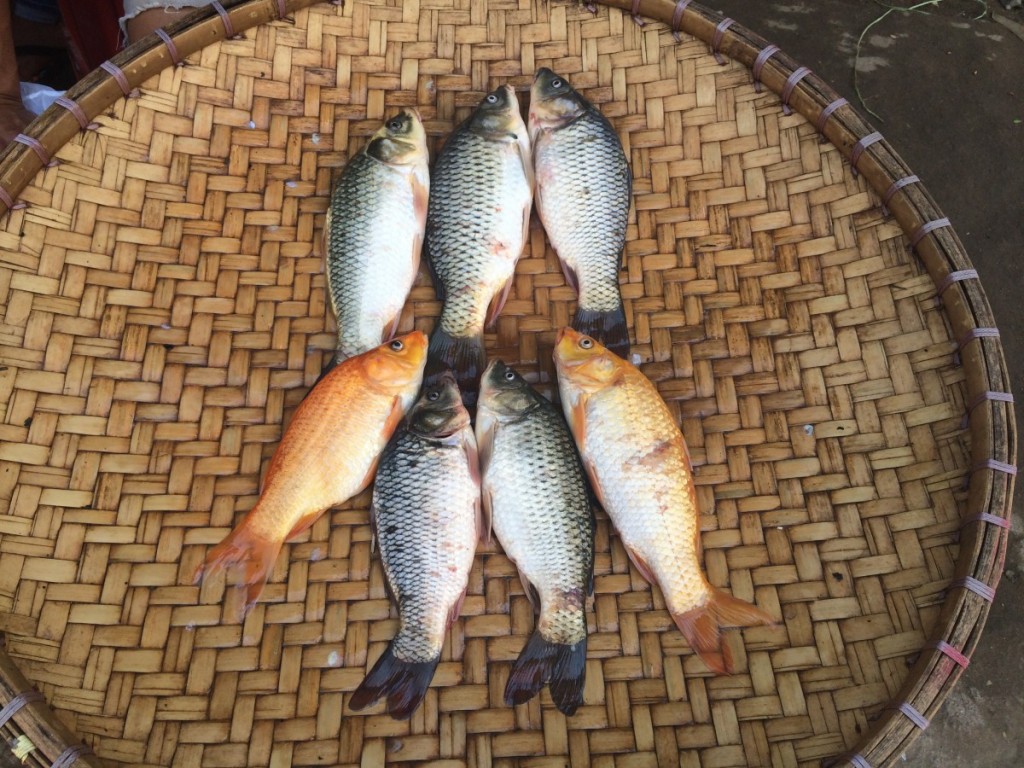

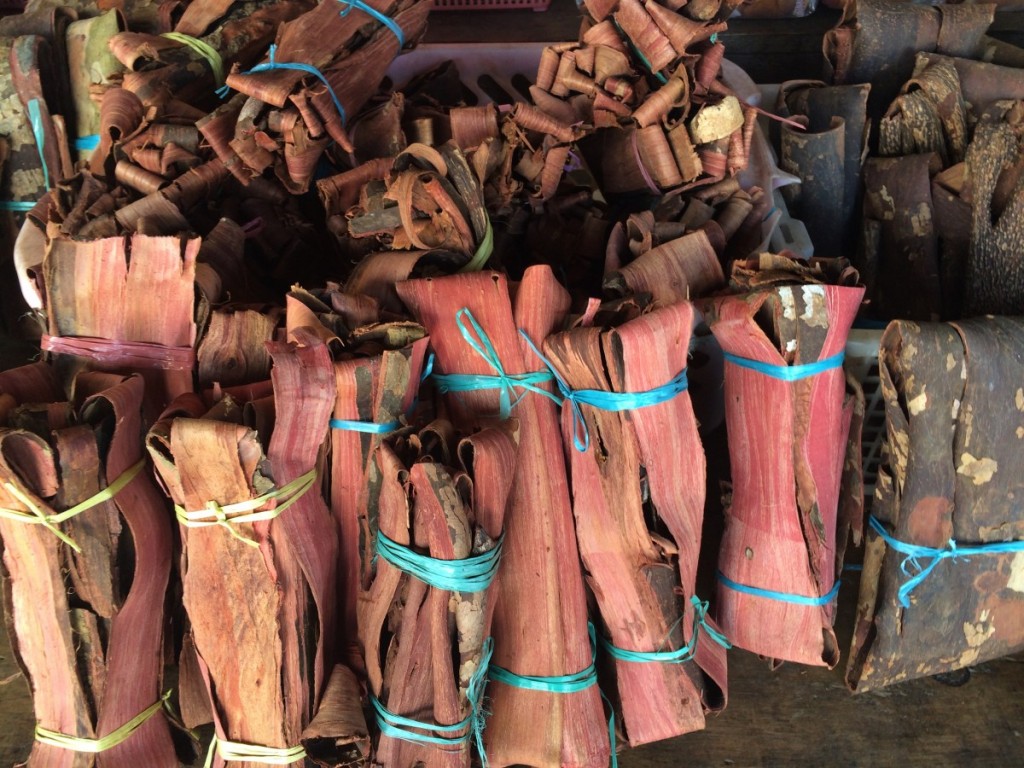
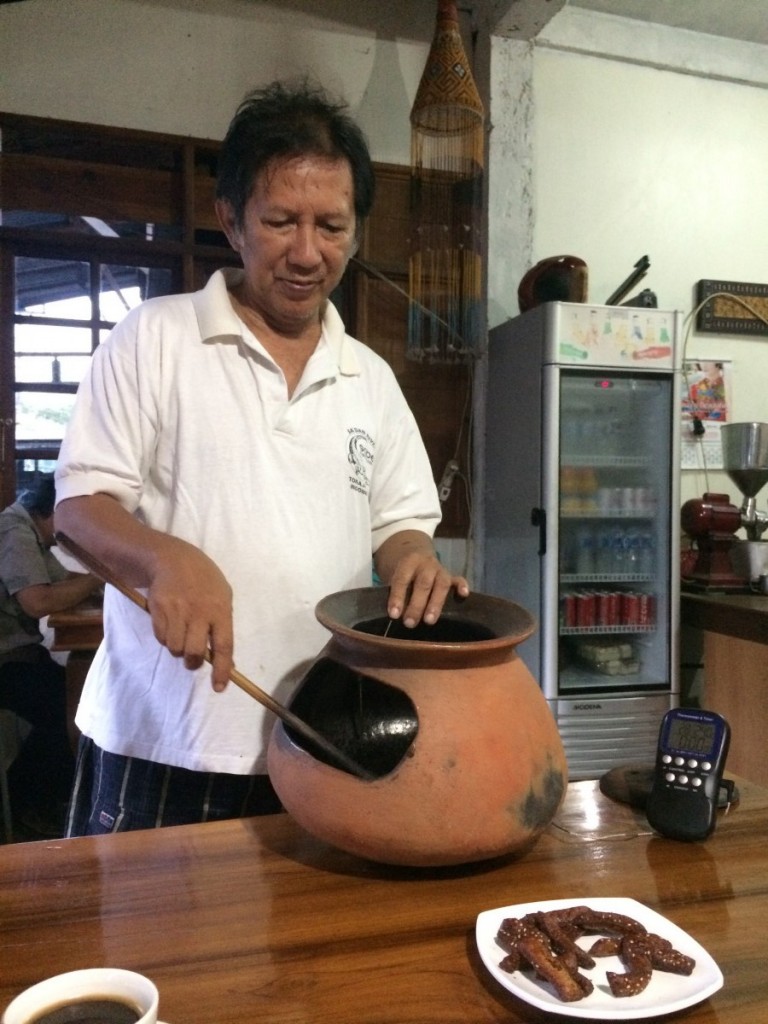
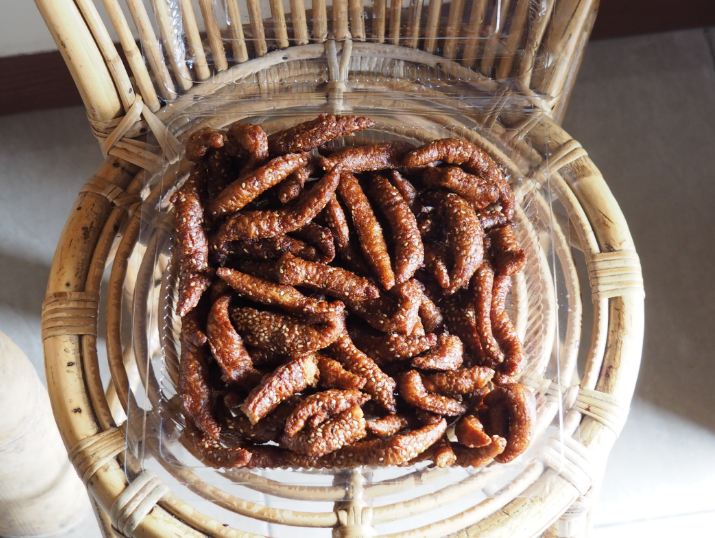
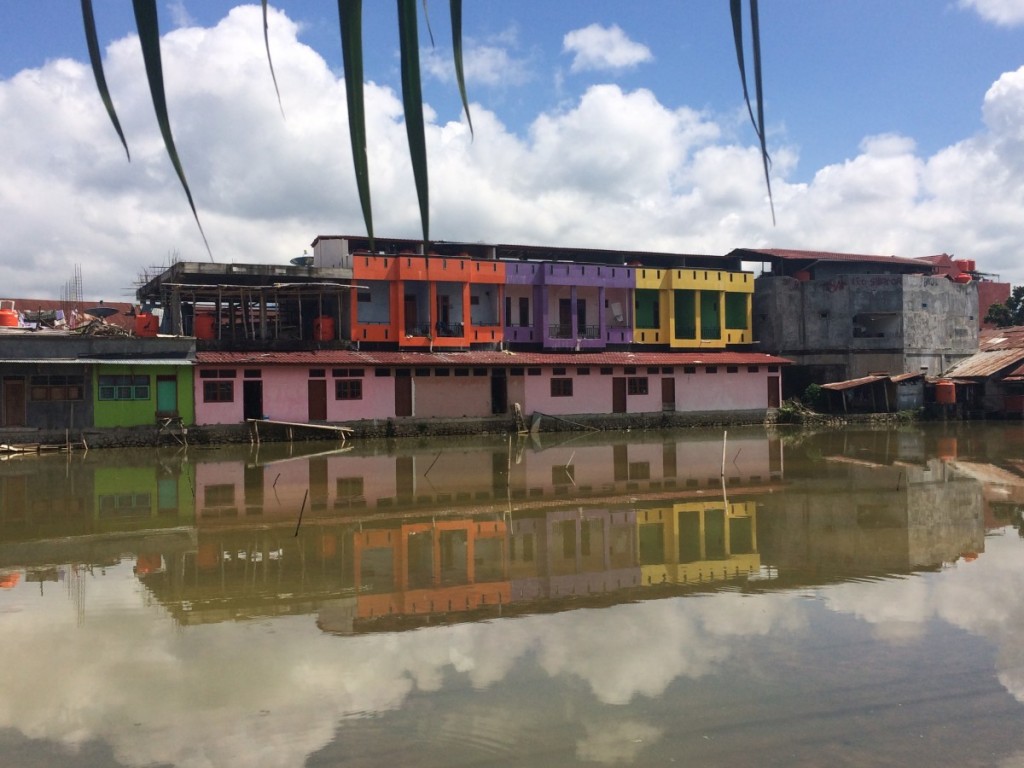
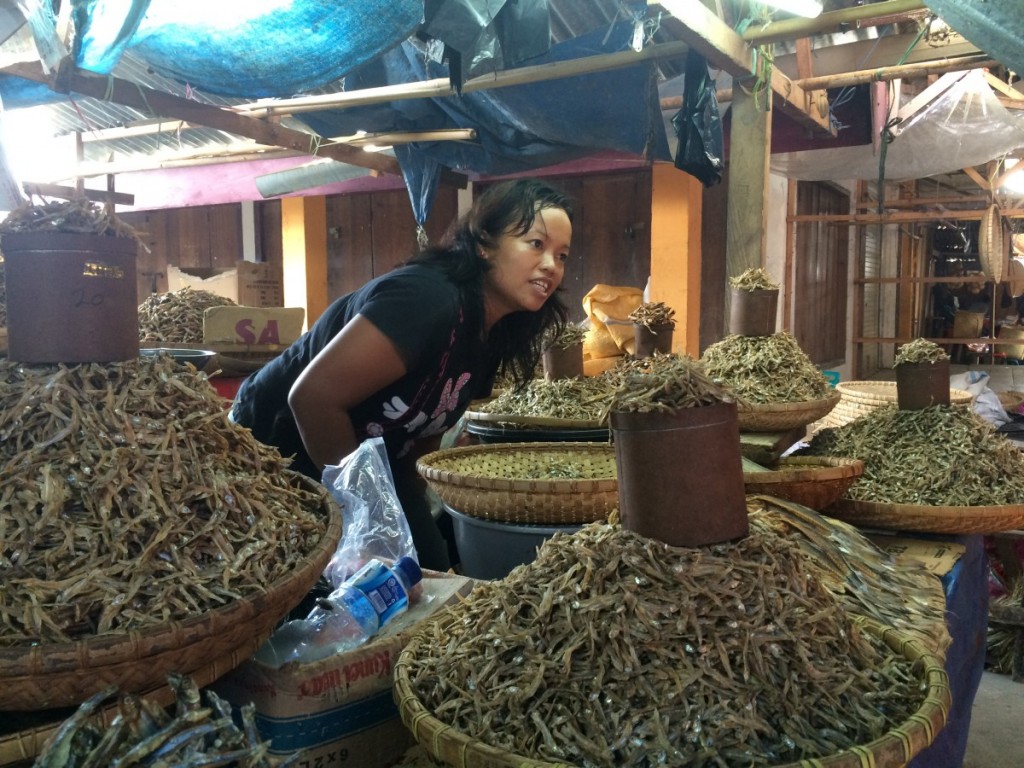
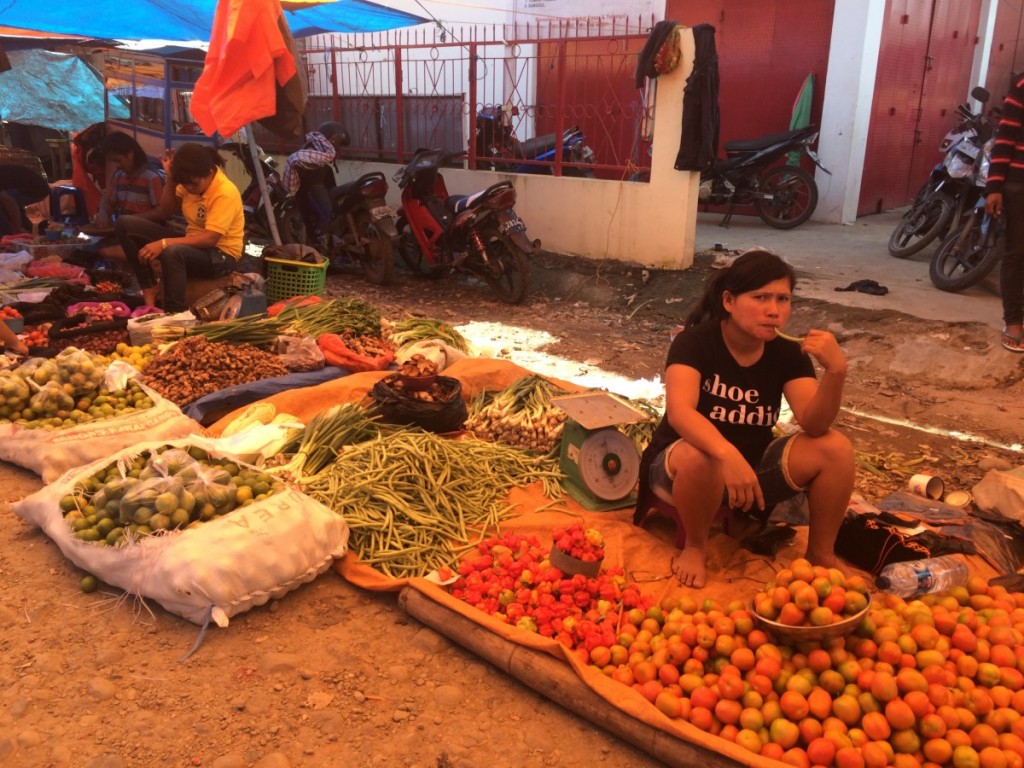
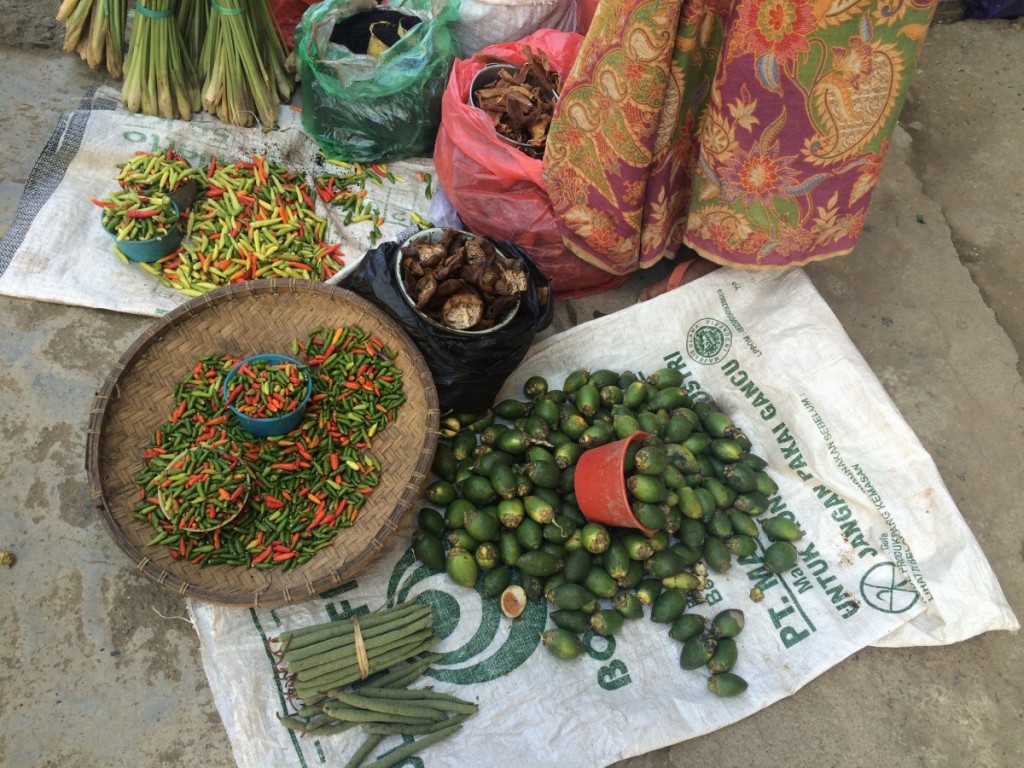
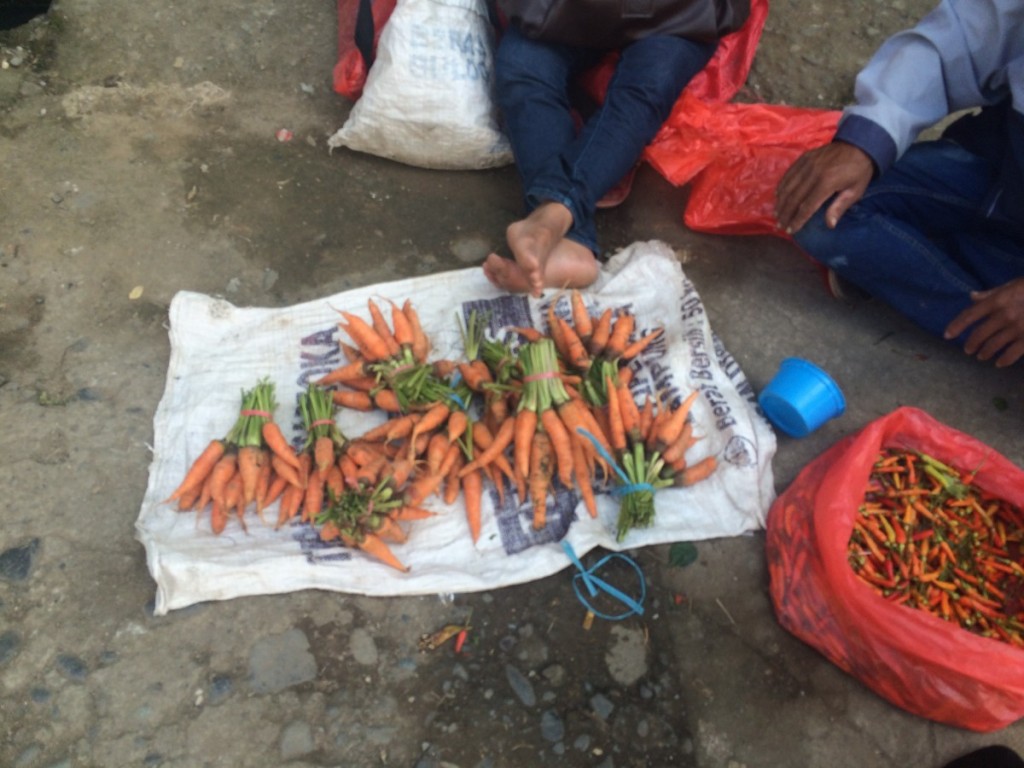
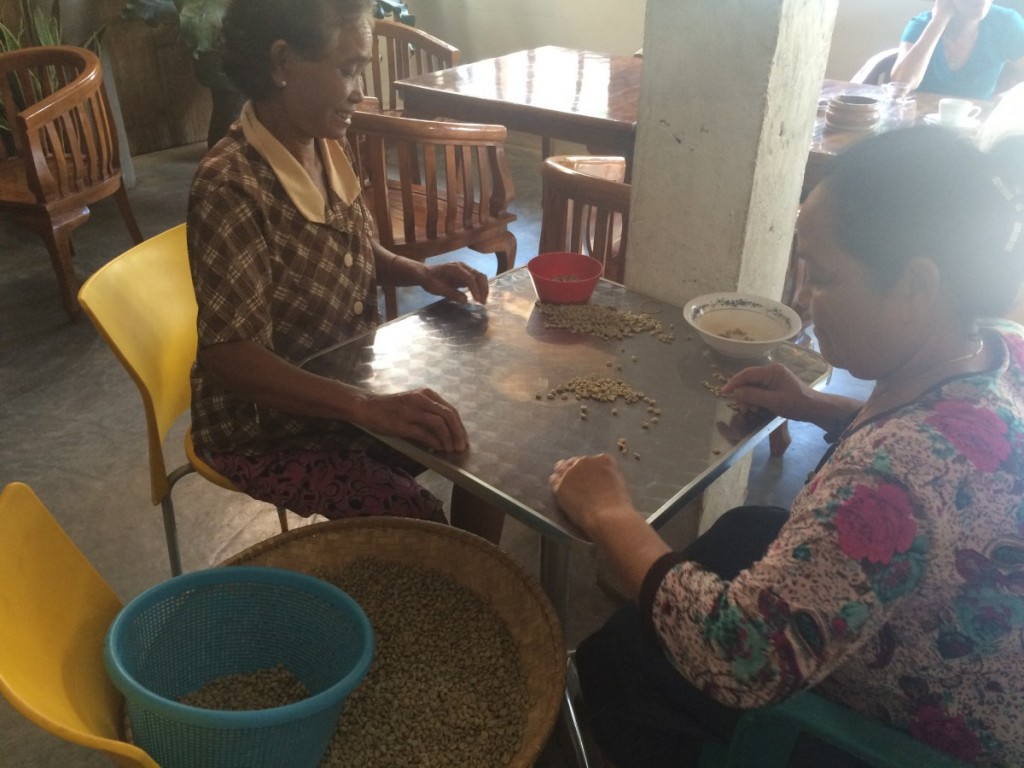
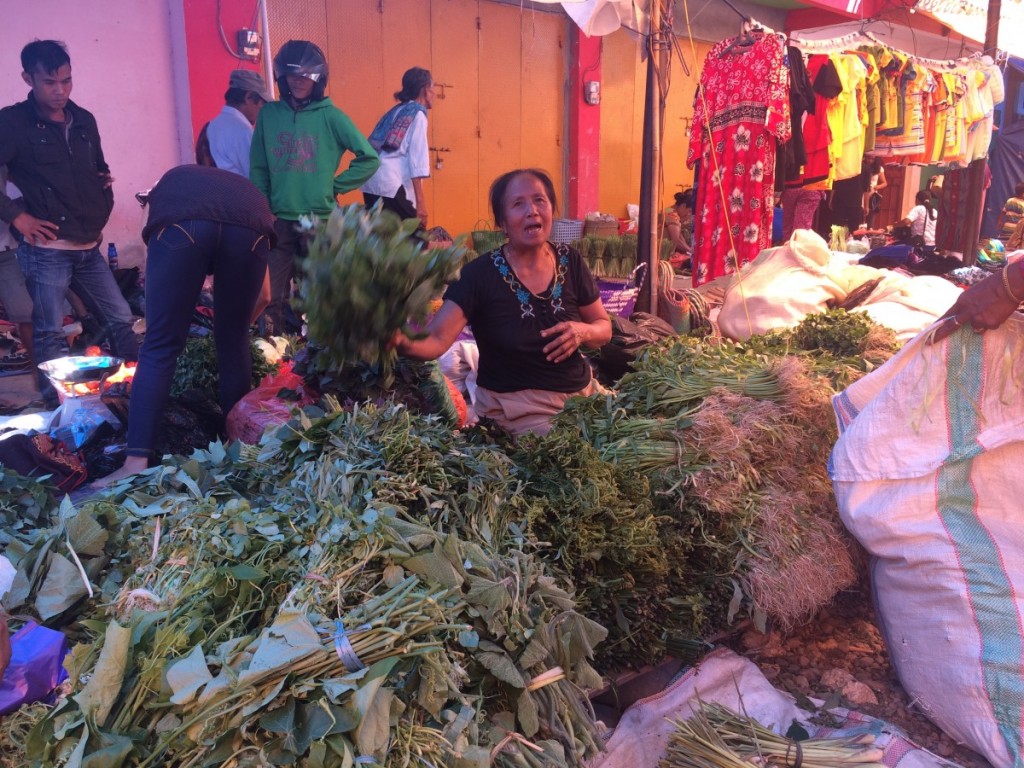
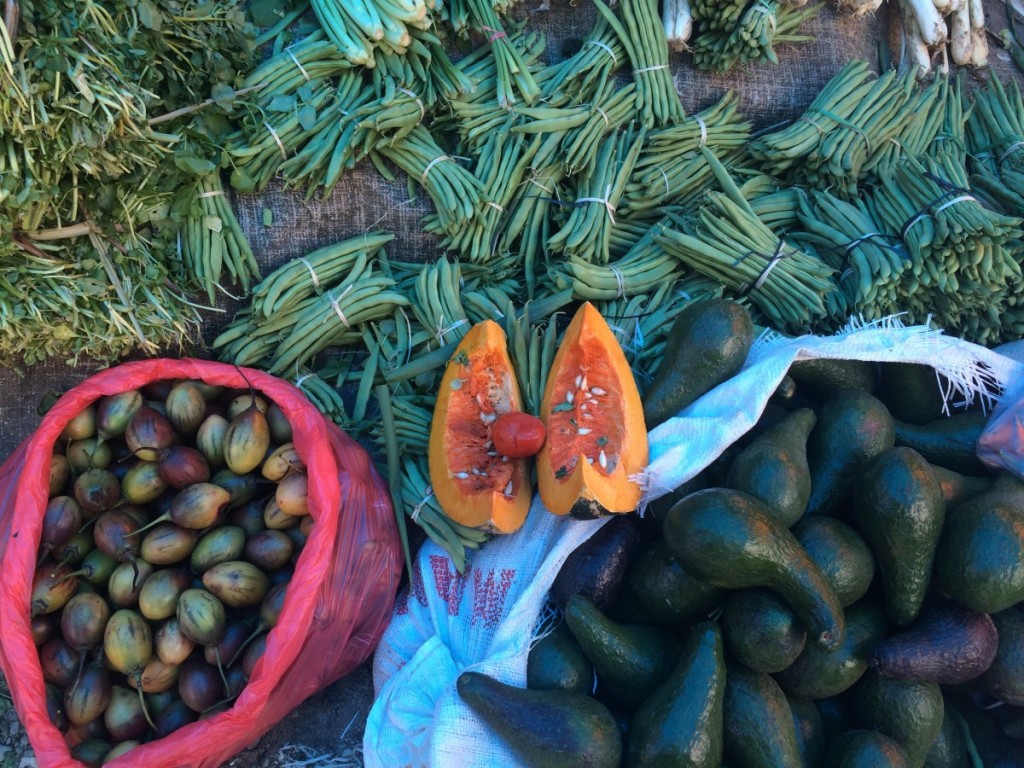
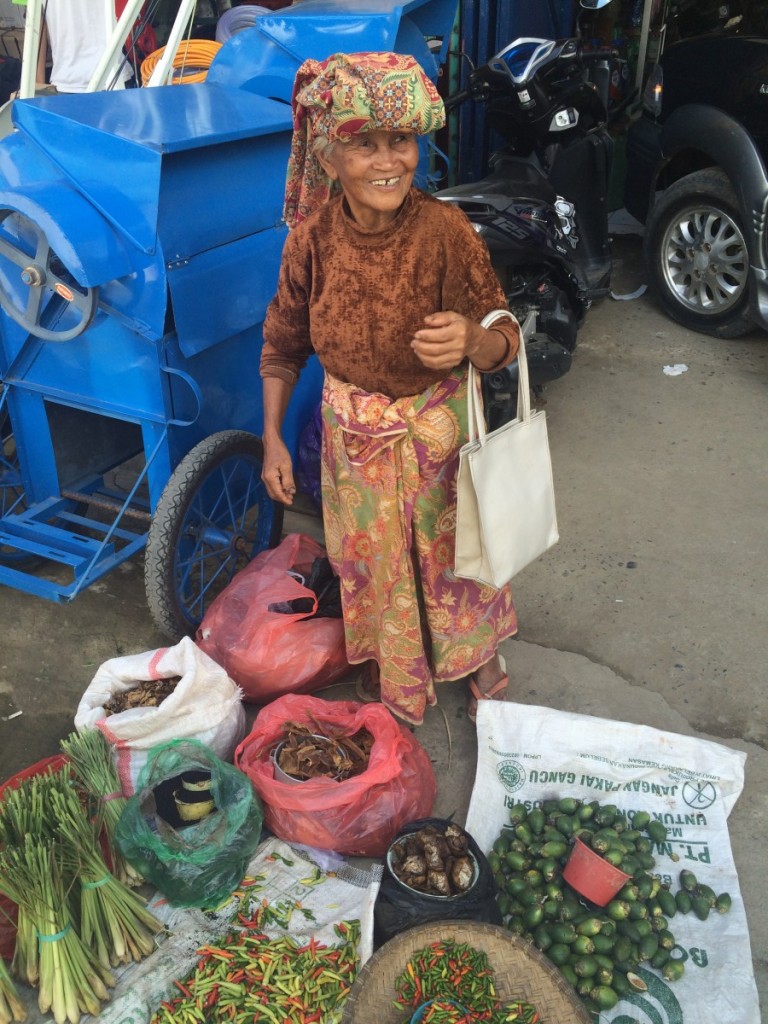
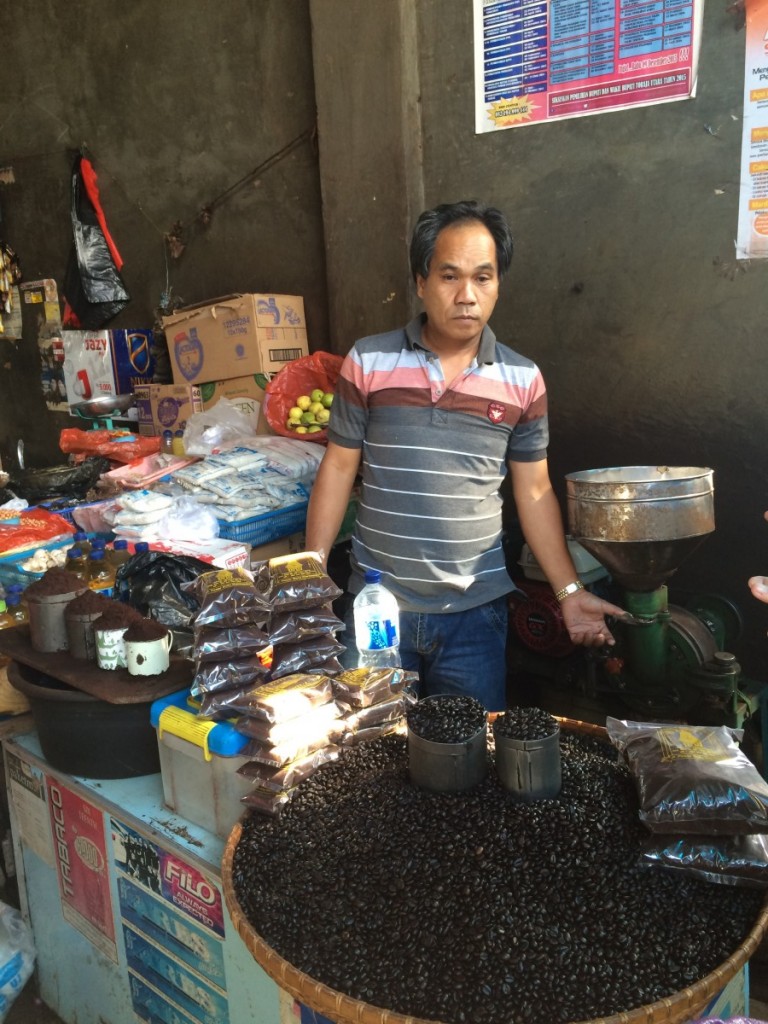
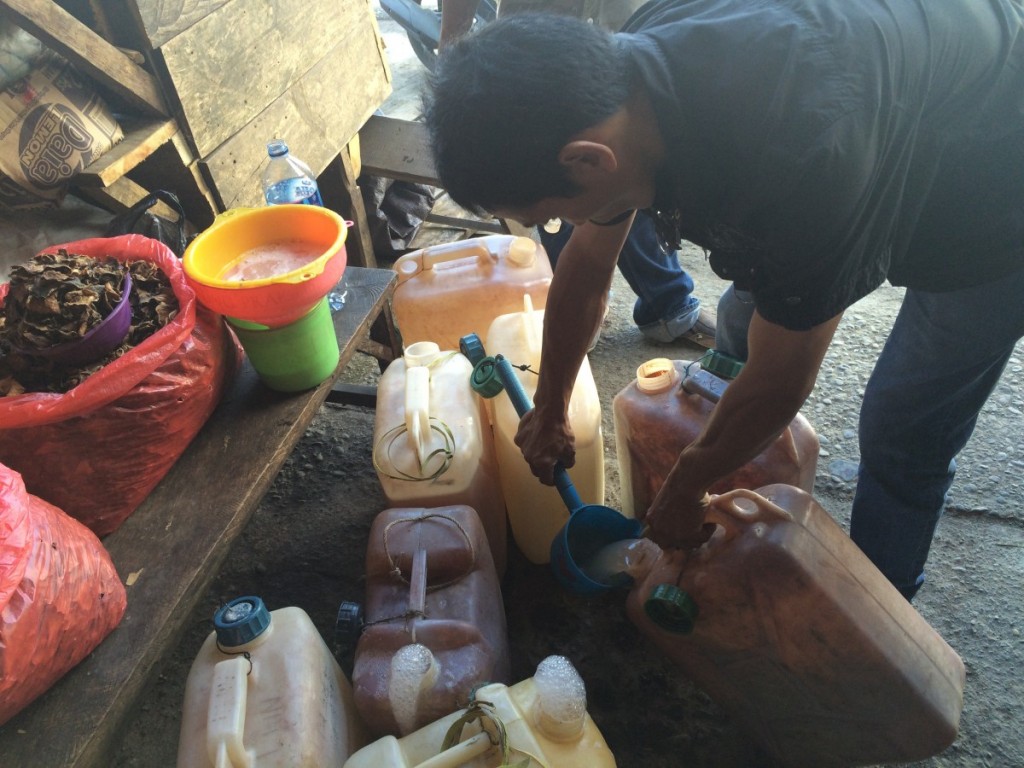
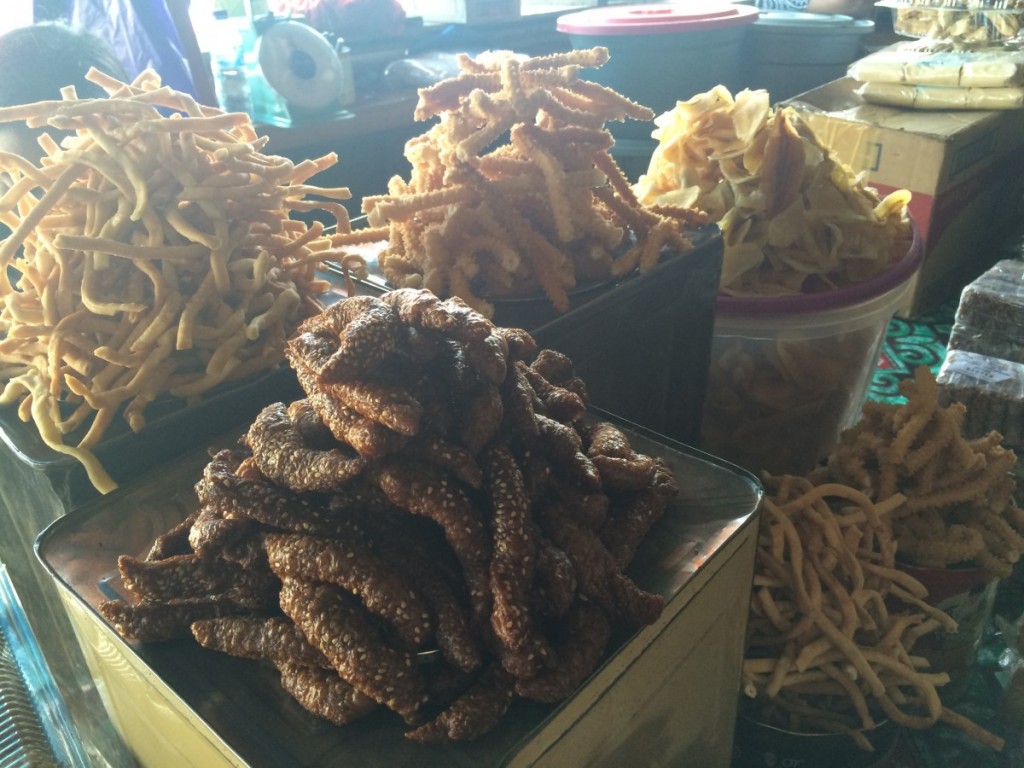
Be First to Comment